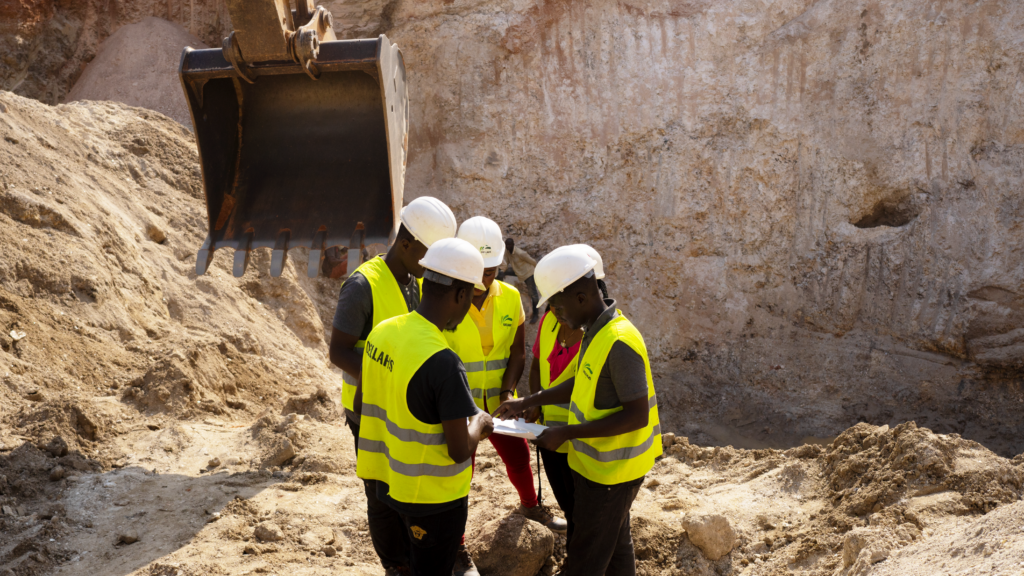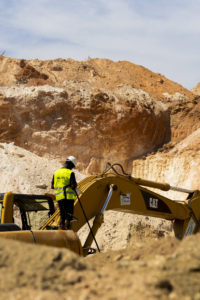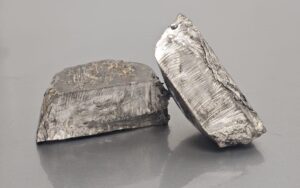Lithium is an increasingly sought-after mineral with a wide range of industrial and economic uses. Nigeria is rich in lithium deposits, which is why it has become the latest focus of mining companies across the world. Dellahs Mining is one such company that has taken the initiative to tap into the potential of lithium in Nigeria.
In this blog post, we will explore the importance of lithium mining in Nigeria and its potential to bring significant economic development to the country. The mining of lithium in Nigeria is on the rise and has become a major contributor to the country’s economic development.
Introduction
Dellahs Mining is among the companies at the forefront of lithium mining in Nigeria, and wants to make significant contributions to the nation’s economy. Through our innovative practices, we aim to successfully mine lithium and provide it to the local and international markets. With the increased availability of lithium, Nigeria is well positioned to become a major player in the global marketplace.
The price of lithium per metric ton can vary based on quality and market dynamics driven by supply and demand. Using 2021 as an example, the average price of a metric ton of battery-grade lithium carbonate according to statista reached $12,600. As reported by The Guardian, the global demand for lithium, often referred to as “white gold,” is anticipated to increase by over 40 times by the year 2040. This growth projection underscores the significance of lithium in various industries.

In 2019, Nigeria produced a total of 50 metric tons of low-grade lithium, a modest figure when compared to the 1,200 metric tons produced in Zimbabwe during the same period. This highlights the potential for further growth and development in Nigeria’s lithium mining sector as it seeks to meet the rising global demand.
Places Lithium can be found in Nigeria
Before the discovery of these high-quality lithium deposits, Nigeria primarily had low-grade varieties of lithium, often co-occurring with other minerals like cassiterite, columbite-tantalite, and pegmatites across various states including Nasarawa, Kogi, Ondo, Osun, Zamfara, Kaduna, Oyo, and Cross River.
Furthermore, Nigeria is now blessed with abundant lithium deposits, making it a promising destination for lithium mining. These deposits are primarily found in states such as Nasarawa, Plateau, and Kaduna. In Nasarawa, the Kokona area is known for its rich lithium reserves, while Plateau is home to vast deposits in locations like Bukuru and Jos. Kaduna also boasts significant lithium deposits, particularly in places like Kafanchan. The presence of lithium in these regions not only holds immense economic potential but also opens up opportunities for sustainable development and technological advancements in Nigeria.
The Economic Benefits of Lithium Mining in Nigeria
Lithium mining in Nigeria has the potential to bring significant economic benefits to the country. They include:
- Growth of Downstream Industries: The lithium mining industry’s growth has a ripple effect, fostering the development of downstream sectors. This includes the expansion of battery manufacturing and electric vehicle production, positioning Nigeria at the forefront of the clean energy revolution.
- Diversification of the Economy: By nurturing the lithium mining industry, Nigeria can effectively diversify their economies. Reducing dependency on a few key industries not only enhances economic stability but also future-proofs against economic volatility.
- Job Creation: Lithium mining operations have the potential to generate a multitude of employment opportunities, ranging from skilled professionals to entry-level laborers. This influx of jobs can help reduce unemployment rates and enhance the livelihoods of local communities.
- Increase in Foreign Investment: The emergence of a robust lithium mining sector in Nigeria can be a magnet for foreign investors. This influx of foreign capital not only stimulates economic growth but also fosters global partnerships and cooperation, driving progress across various sectors.
- Infrastructure Development: The establishment of lithium mining operations acts as a catalyst for infrastructure development. This includes the construction of essential transportation networks like roads and railways, as well as increased energy generation through power plants, ensuring sustainable and efficient resource extraction.
- Increased Tax Revenue: Lithium mining operations yield substantial tax revenue, contributing to government coffers. These funds can be strategically allocated towards public projects and essential services, thereby enhancing the overall well-being of citizens.
- Boost to Local Economy: The local economy receives a significant boost through lithium mining, leading to increased local consumption of goods and services. This surge in economic activity can create a thriving local marketplace, benefitting businesses and communities alike.
The Impact of Dellahs Mining on the Lithium Industry in Nigeria
Dellahs Mining aims to be at the forefront of the lithium mining industry in Nigeria. With a dedicated team of experts and state-of-the-art technology, the mission is to make significant strides in extracting lithium from the rich reserves in the country. However, Dellahs Mining is not just about mining. We are committed to sustainable practices, ensuring that the environment is protected throughout the mining process.
By driving economic growth and development, Dellahs Mining is not only transforming the lithium industry in Nigeria but also making a lasting impact on the country as a whole. With our innovative approach and dedication to social responsibility, we are paving the way for a brighter future.

Challenges Facing Lithium Mining in Nigeria
Lithium mining in Nigeria is not without its challenges. One of the main challenges is the lack of infrastructure and logistical support, which makes it difficult to extract and transport the lithium efficiently.
Additionally, there may be environmental concerns associated with the mining process, such as the potential impact on local ecosystems and water sources.
Furthermore, the global market for lithium is highly competitive, with other countries like Australia and Chile already dominating the industry. Overcoming these challenges will require strategic planning, investment in infrastructure, and a commitment to sustainable mining practices.
Conclusion
In conclusion, the rise of lithium mining in Nigeria holds immense significance for the country’s economic development and future prospects. With rich lithium deposits, Nigeria has the potential to diversify its economy, create jobs, attract foreign investment, and improve infrastructure.
However, challenges like infrastructure limitations and global competition exist. Despite these hurdles, with commitment to sustainable practices, Nigeria can pave the way for a brighter economic future.
Dellahs Mining is committed to making a lasting impact on the lithium industry in Nigeria. With our dedicated team and advanced technology, we aim to transform the sector while safeguarding the environment. Through our efforts, we are not only advancing the lithium industry but also contributing to the broader development of Nigeria.
Also see Enough lithium for 50% of global cars to go electric?







